VW ID.4 vs Hyundai IONIQ 5 – Differences & prices compared
Compare performance, boot space, consumption and price in one view.
Find out now: which car is the better choice for you – VW ID.4 or Hyundai IONIQ 5?
The VW ID.4 (SUV) comes with a Electric engine and Automatic transmission. In comparison, the Hyundai IONIQ 5 (SUV) features a Electric engine with Automatic transmission.
When it comes to boot capacity, the VW ID.4 offers 543 L, while the Hyundai IONIQ 5 provides 520 L – depending on how much space you need. If you’re looking for more power, decide whether the 340 HP of the VW ID.4 or the 609 HP of the Hyundai IONIQ 5 suits your needs better.
In terms of consumption, the values are 15.80 kWh per 100 km for the VW ID.4, and 15.60 kWh for the Hyundai IONIQ 5.
Price-wise, the VW ID.4 starts at 34600 £, while the Hyundai IONIQ 5 is available from 37600 £. Compare all the details and find out which model fits your lifestyle best!
In the battle of electric SUVs, the Hyundai IONIQ 5 and Volkswagen ID.4 present compelling choices for eco-conscious drivers. The IONIQ 5 impresses with its futuristic design and spacious interior, while the ID.4 offers practical versatility and a well-rounded driving experience. Both models deliver impressive range and technology, but ultimately, personal preference in style and brand loyalty may guide buyers' decisions.
VW ID.4
The VW ID.4 represents Volkswagen's commitment to the electric vehicle market, combining contemporary design with sustainability. Its spacious interior and intuitive technology make it an attractive choice for those seeking comfort and innovation in an eco-friendly package. With a focus on electric performance and practicality, this car is set to be a popular option among environmentally-conscious drivers.
details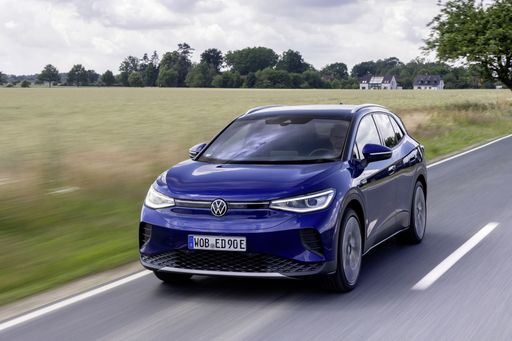 @ Volkswagen
@ Volkswagen
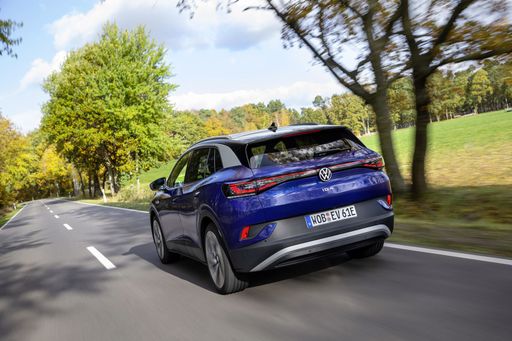 @ Volkswagen
@ Volkswagen
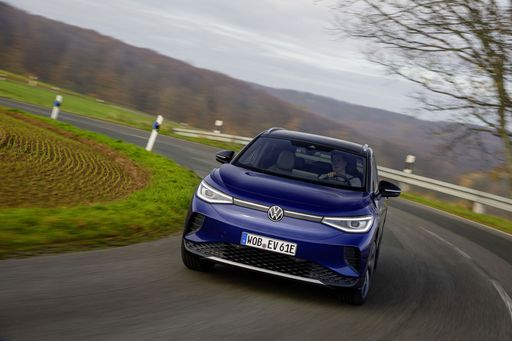 @ Volkswagen
@ Volkswagen
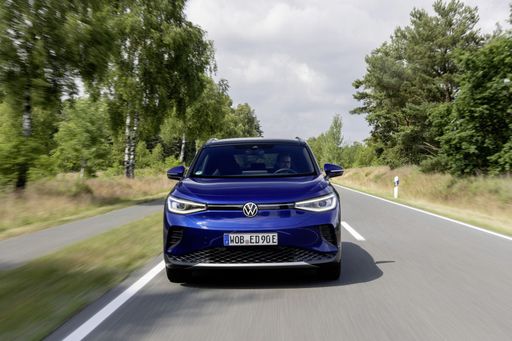 @ Volkswagen
@ Volkswagen
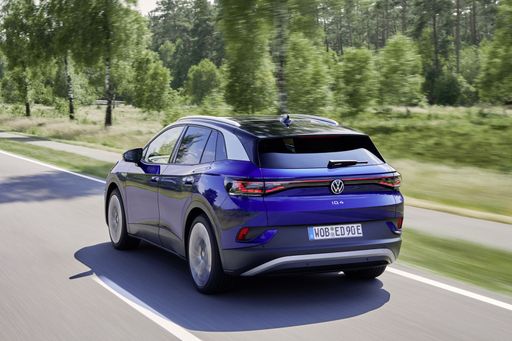 @ Volkswagen
@ Volkswagen
 @ Volkswagen
@ Volkswagen
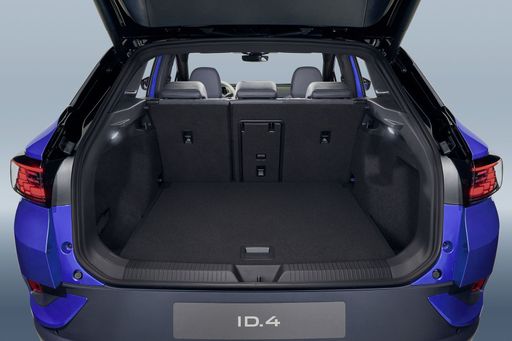 @ Volkswagen
@ Volkswagen
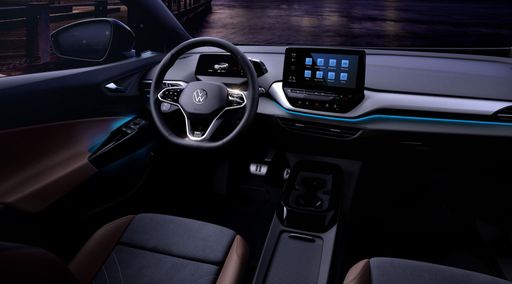 @ Volkswagen
@ Volkswagen
Hyundai IONIQ 5
The Hyundai IONIQ 5 showcases a bold and futuristic design that captures attention with its striking facade and sharp lines. This electric vehicle offers an impressive blend of performance and efficiency, making it a compelling choice for environmentally conscious drivers. Inside, the spacious and tech-forward interior provides a comfortable and engaging driving experience for both driver and passengers.
details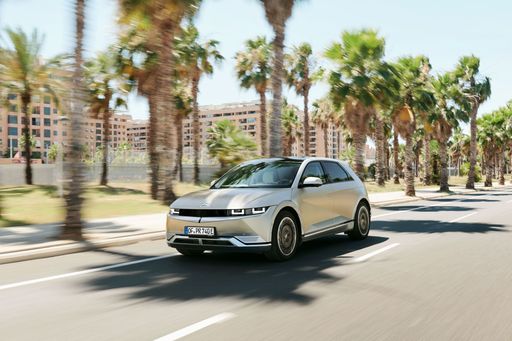 @ hyundai.news
@ hyundai.news
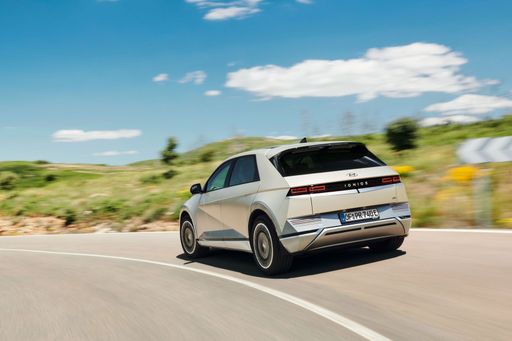 @ hyundai.news
@ hyundai.news
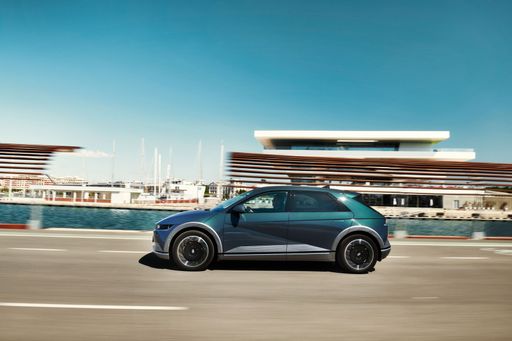 @ hyundai.news
@ hyundai.news
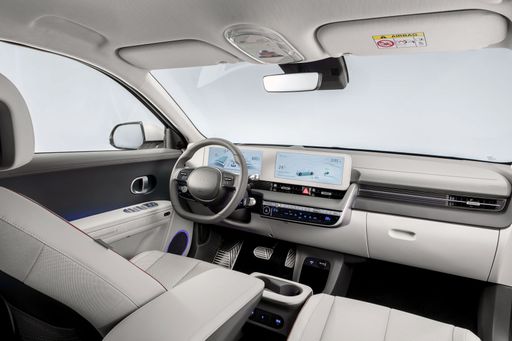 @ hyundai.news
@ hyundai.news
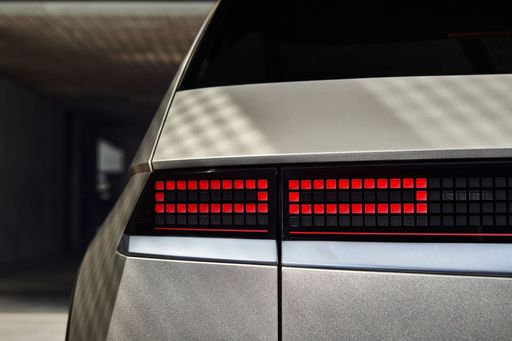 @ hyundai.news
@ hyundai.news
Introduction
The electric vehicle (EV) market continues to expand, offering consumers a wide array of choices filled with technological innovations and sustainability. Two strong contenders in the electric SUV segment are the Hyundai IONIQ 5 and the Volkswagen ID.4. Both vehicles showcase unique advantages, impressive specifications, and cutting-edge technologies, making them appealing to different types of drivers. In this article, we will compare these two electric SUVs based on their technical aspects and innovations.
Powertrain and Performance
The Hyundai IONIQ 5 offers a range of performance options with power outputs ranging from 170 HP to a staggering 609 HP in its high-performance variant. With rear-wheel and all-wheel drive configurations, this SUV boasts an acceleration time of just 3.5 seconds from 0 to 100 km/h for the performance model. The IONIQ 5's battery capacity options include 63 kWh and 84 kWh, enabling it to achieve an electric range of up to 570 km. This impressive figure is supported by a low consumption rate, with the most efficient variant consuming just 15.6 kWh per 100 km.
In contrast, the Volkswagen ID.4 comes with a slightly lower maximum power output peaking at 340 HP, offering a variety of configurations with power ranging from 170 HP to 286 HP. The ID.4 reaches 100 km/h in as little as 5.4 seconds in its most potent iteration. Its battery capacity is also competitive, featuring options of 52 kWh and 77 kWh, which allow for an electric range of up to 572 km. While both SUVs perform admirably, the IONIQ 5 appears to have a slight edge in power and acceleration, especially in its top-tier variant.
Design and Dimensions
The IONIQ 5 features a distinctive design, combining retro elements with a futuristic aesthetic. It measures 4655 mm in length, 1890 mm in width, and 1605 mm in height, giving it a sleek profile. The SUV offers an impressive trunk capacity of 520 liters, making it practical for family use or road trips. Moreover, the IONIQ 5 is known for its spacious interior and high-quality materials, delivering a comfortable experience for all passengers.
On the other hand, the VW ID.4 measures in slightly smaller at 4584 mm in length and 1852 mm in width, while its height reaches 1634 mm. Despite its reduced size, the ID.4 still provides a generous trunk space of 543 liters, creating a versatile storage option. Its design leans toward a more conventional SUV look, which might appeal to traditional VW enthusiasts. While both vehicles are spacious, the IONIQ 5 boasts a more innovative design language, whereas the ID.4 sticks to a more classic VW aesthetic.
Technology and Innovations
Both the Hyundai IONIQ 5 and Volkswagen ID.4 are technologically advanced, featuring extensive infotainment systems, driver-assistance features, and connectivity options. The IONIQ 5 is equipped with a 12.3-inch digital cluster and a similarly sized infotainment display, offering intuitive access to navigation, music, and car settings. One of its standout features is its ultra-fast charging capability, with a maximum charging speed that allows an 80% charge in just 18 minutes.
The ID.4, in turn, prides itself on its ID. Cockpit, which includes a customizable digital display. It also supports over-the-air updates, enhancing the vehicle's functionality over time. The ID.4 features a host of driver-assistance technologies, including adaptive cruise control and lane-keeping assistance. Both vehicles are equipped with regenerative braking systems, further enhancing their efficiency and extending range.
Environmental Impact and Efficiency
In terms of environmental impact, both the Hyundai IONIQ 5 and Volkswagen ID.4 have a CO2 efficiency class of A, indicating their low emissions and sustainable design. The IONIQ 5, with its lowest consumption rate of 15.6 kWh per 100 km, positions itself as one of the more efficient vehicles in its category. The ID.4’s energy consumption varies slightly, with a maximum of 16.8 kWh per 100 km, still within an impressive range for electric SUVs.
Conclusion
In the battle between the Hyundai IONIQ 5 and Volkswagen ID.4, buyers are presented with two exceptional electric SUVs, each with its own strengths. The IONIQ 5 excels in performance with more powerful variants and exceptional range, coupled with a striking design and fast-charging capabilities. The ID.4, while slightly less powerful, offers a more traditional Volkswagen experience, packed with user-friendly technology and a well-designed interior.
Ultimately, the choice between the IONIQ 5 and ID.4 may come down to personal preferences in aesthetics, performance, or brand loyalty. Regardless of the choice, both vehicles represent the future of sustainable driving and elevated electric mobility.

|

|
|
|
|
Costs and Consumption |
|
|---|---|
|
Price
34600 - 45600 £
|
Price
37600 - 64200 £
|
|
Consumption L/100km
-
|
Consumption L/100km
-
|
|
Consumption kWh/100km
15.8 - 16.7 kWh
|
Consumption kWh/100km
15.6 - 21.2 kWh
|
|
Electric Range
363 - 572 km
|
Electric Range
440 - 570 km
|
|
Battery Capacity
52 - 77 kWh
|
Battery Capacity
63 - 84 kWh
|
|
co2
0 g/km
|
co2
0 g/km
|
|
Fuel tank capacity
-
|
Fuel tank capacity
-
|
Dimensions and Body |
|
|---|---|
|
Body Type
SUV
|
Body Type
SUV
|
|
Seats
5
|
Seats
5
|
|
Doors
5
|
Doors
5
|
|
Curb weight
1979 - 2261 kg
|
Curb weight
1955 - 2275 kg
|
|
Trunk capacity
543 L
|
Trunk capacity
480 - 520 L
|
|
Length
4582 - 4584 mm
|
Length
4655 - 4715 mm
|
|
Width
1852 mm
|
Width
1890 - 1940 mm
|
|
Height
1619 - 1634 mm
|
Height
1585 - 1605 mm
|
|
Payload
509 - 541 kg
|
Payload
385 - 530 kg
|
Engine and Performance |
|
|---|---|
|
Engine Type
Electric
|
Engine Type
Electric
|
|
Transmission
Automatic
|
Transmission
Automatic
|
|
Transmission Detail
-
|
Transmission Detail
-
|
|
Drive Type
Rear-Wheel Drive, All-Wheel Drive
|
Drive Type
Rear-Wheel Drive, All-Wheel Drive
|
|
Power HP
170 - 340 HP
|
Power HP
170 - 609 HP
|
|
Acceleration 0-100km/h
5.4 - 9 s
|
Acceleration 0-100km/h
3.5 - 8.5 s
|
|
Max Speed
160 - 180 km/h
|
Max Speed
185 - 260 km/h
|
|
Torque
310 - 679 Nm
|
Torque
350 - 740 Nm
|
|
Number of Cylinders
-
|
Number of Cylinders
-
|
|
Power kW
125 - 250 kW
|
Power kW
125 - 448 kW
|
|
Engine capacity
-
|
Engine capacity
-
|
General |
|
|---|---|
|
Model Year
2023 - 2024
|
Model Year
2024
|
|
CO2 Efficiency Class
A
|
CO2 Efficiency Class
A
|
|
Brand
VW
|
Brand
Hyundai
|
VW ID.4
The VW ID.4: A Leap into the Electric Era
As electric vehicles steadily capture the automotive market, the Volkswagen ID.4 stands as a testament to impressive innovation and functionality. Combining eco-friendly technology with the practicality of an SUV, the VW ID.4 is designed to appeal to both environmentally conscious drivers and those seeking versatility in their vehicle choice. In this article, we'll explore the significant technical features and innovations that make the ID.4 a remarkable option in the electric vehicle market.
Powertrain Options: Efficiency Meets Performance
The Volkswagen ID.4 offers a range of powertrain options to suit various driving preferences. With power outputs ranging from 170 to 340 PS and torque figures between 310 and 679 Nm, the ID.4 provides a versatile driving experience. Whether you opt for the responsive rear-wheel drive or the enhanced stability of the all-wheel-drive configuration, each model guarantees smooth and efficient performance.
With an emphasis on efficiency, the ID.4 boasts a consumption rate between 15.8 and 16.8 kWh/100km, making it an economical choice for those mindful of their energy usage. Furthermore, the ID.4 offers a robust driving range, with potential distances reaching up to 572 km, reducing the need for frequent recharging and allowing for longer journeys with peace of mind.
Charging and Battery Technology
Efficiency isn't the only strong suit of the ID.4—the battery technology is equally impressive. With a battery capacity ranging from 52 to 77 kWh, Volkswagen ensures that drivers can match their vehicle choice to their lifestyle needs. Charging is straightforward and adaptable, providing convenience whether at home or on the move.
The ID.4 is designed for compatibility with a variety of charging infrastructure, ensuring rapid charging times and minimal downtime. This thoughtful engineering ensures that drivers spend more time on the road and less time waiting at charging stations.
Design and Practicality: An SUV with a Mission
The VW ID.4 embraces its SUV heritage, offering ample interior space and practicality without compromising on style. With its dimensions ranging from 4582 to 4584 mm in length, 1852 mm in width, and up to 1634 mm in height, the ID.4 ensures a comfortable and spacious environment for up to five passengers.
Additionally, the ID.4 provides a generous boot space of 543 litres, making it ideal for families or those with an active lifestyle requiring extra storage. The careful consideration in design extends to weight efficiency, with the vehicle's own weight between 1979 and 2261 kg helping to enhance its overall drive dynamics and efficiency.
Innovative Features and Technology
Volkswagen has equipped the ID.4 with a suite of advanced technological features designed to enhance both safety and driving enjoyment. These features include intuitive infotainment systems, driver-assistance technologies, and connectivity options tailored to modern expectations.
One standout attribute of the ID.4 is its commitment to sustainability with a CO2 efficiency class of A, demonstrating Volkswagen's dedication to reducing environmental impact without sacrificing performance or functionality.
Conclusion: The Future is Electric
The VW ID.4 is a shining example of how traditional automotive excellence adapts to contemporary demands for sustainability and efficiency. Whether you are an enthusiastic early adopter of electric vehicles or simply someone in search of a reliable and advanced SUV, the ID.4 offers a compelling package designed for the future.
For anyone ready to embrace the electric revolution, the Volkswagen ID.4 represents a significant step forward—a combination of forward-thinking technology, efficient design, and an emphasis on practicality. This makes the ID.4 a worthy consideration for any discerning driver looking to invest in their next vehicle.
Hyundai IONIQ 5
Introducing the Hyundai IONIQ 5: A New Era in Electric Mobility
The Hyundai IONIQ 5 is a revolutionary addition to the electric car market, blending futurist aesthetics with ingenious technological features. As part of Hyundai's all-electric lineup, the IONIQ 5 exudes a refreshing approach to sustainable motoring, offering a blend of power, efficiency, and innovation that is set to transform everyday driving.
A Futuristic Design
The IONIQ 5 sets new standards in automotive design with its distinctive silhouette. Its clamshell bonnet and pixelated LED light design form a unique visual signature, evoking a sense of modernity and advancement. Built on Hyundai's Electric-Global Modular Platform (E-GMP), this SUV heralds a new direction for electric vehicles, serving both form and function with a flat floor that maximises interior space.
Performance and Efficiency
The Hyundai IONIQ 5 offers a variety of powertrains to cater to different driving preferences. Depending on the model, power output ranges from 170 PS to a staggering 609 PS, with corresponding torque between 350 Nm and 740 Nm. These configurations enable a brisk acceleration capability, reaching 0-100 km/h in as little as 3.5 seconds.
The car’s battery options of 63 kWh and 84 kWh provide flexibility between range and performance. The efficiency of the IONIQ 5 is admirable, with a consumption ranging from 15.6 to 21.2 kWh/100km, ensuring the capability to travel up to 570 km on a single charge.
Innovative Technology
The IONIQ 5 isn't just about efficient propulsion; it's laden with cutting-edge technology that enhances the driving experience. The vehicle includes an ultra-fast charging capability, able to reclaim 80% of the battery life within just 18 minutes. This is complemented by Vehicle-to-Load (V2L) technology, which turns the IONIQ 5 into a power source to charge devices or even other electric vehicles.
Comfort and Convenience
Inside, the IONIQ 5 continues to impress with a spacious and flexible cabin that maximises comfort and utility. Its minimalist dashboard, dual 12.3-inch screens for infotainment and digital instrument cluster, and extensive use of eco-friendly materials contribute to a serene driving environment.
Safety Meets Innovation
Hyundai has equipped the IONIQ 5 with an array of advanced driver assistance systems. These include features such as Smart Cruise Control, Highway Driving Assist, and Remote Smart Parking Assist, ensuring that safety is paramount without sacrificing convenience.
The Future of Sustainable Driving
With a CO2 efficiency class of A and zero emissions, the Hyundai IONIQ 5 signifies a shift towards more sustainable driving practices. Its blend of technology, performance, and aesthetic appeal positions it as a pivotal player in the electric vehicle market, paving the way for a cleaner, greener future in automotive design.
The prices and data displayed are estimates based on German list prices and may vary by country. This information is not legally binding.
